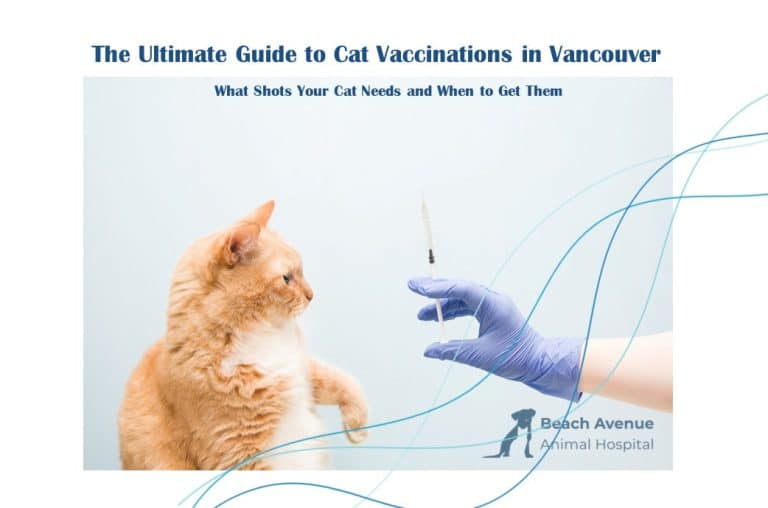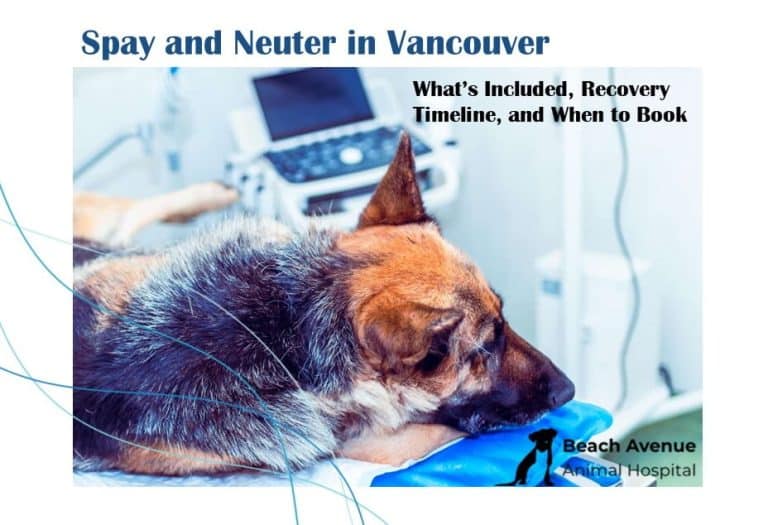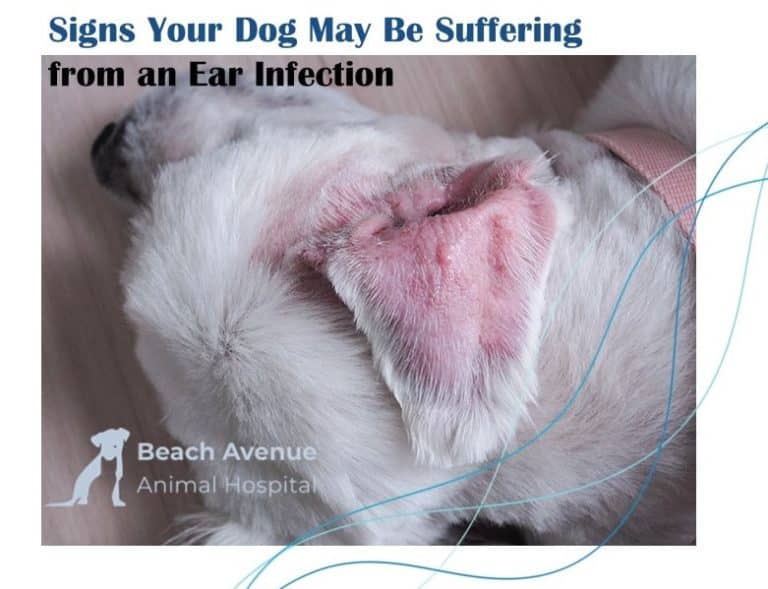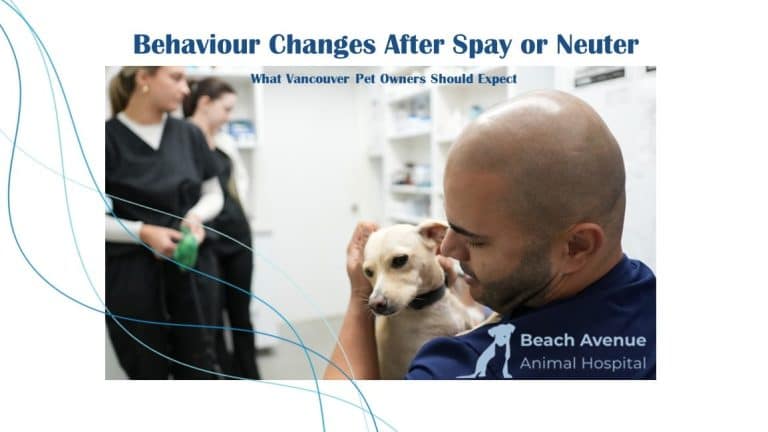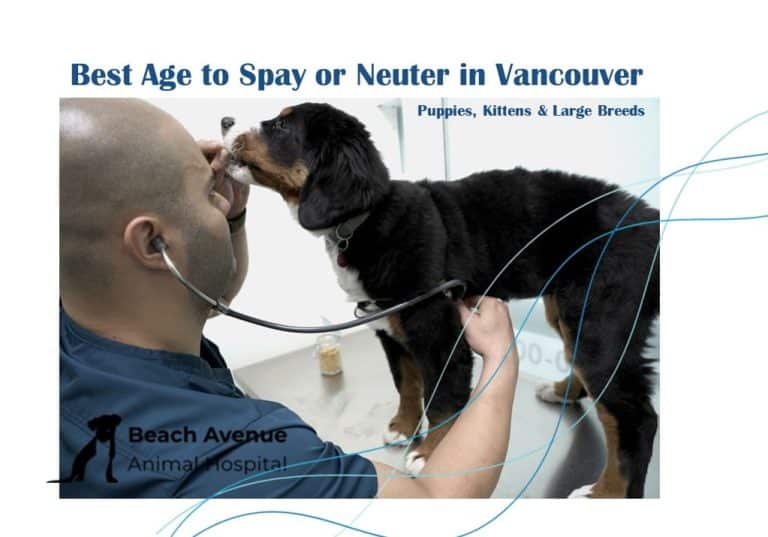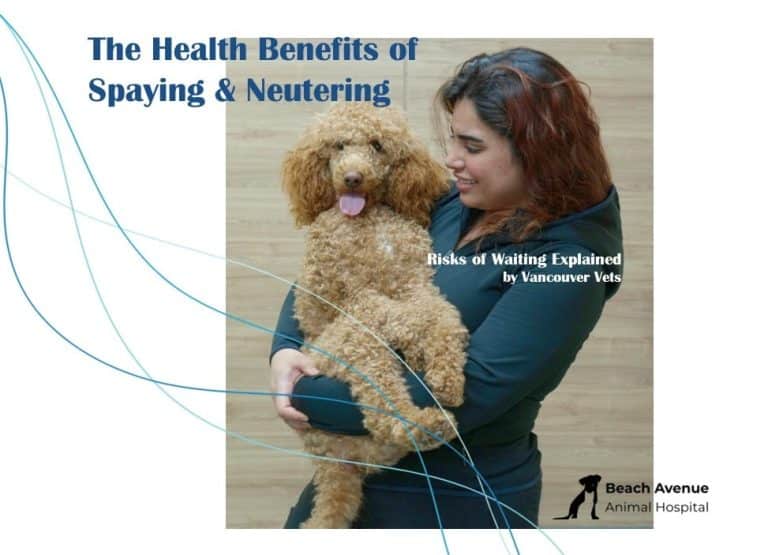For most Vancouver pet parents, deciding to spay or neuter their dog or cat comes with a mix of relief and anxiety. Relief, because the procedure has well-documented health and behavioural benefits. Anxiety, because recovery feels uncertain — will my pet be in pain, how long will it take, and what red flags should I watch for?
At Beach Avenue Animal Hospital, we’ve guided hundreds of families through this exact journey. In this article, we’ll break down the timeline of recovery, offer aftercare tips tailored to Vancouver’s environment, highlight warning signs, and even explain how services like laser therapy can make healing faster and smoother.
The First 24 Hours: What to Expect Immediately After Surgery
Right after a spay or neuter procedure, your pet will likely be groggy and may not have much of an appetite. This is completely normal — anesthesia takes a little time to wear off. Most dogs and cats should be allowed to rest in a quiet, warm space without too much stimulation.
During this period, watch for:
-
Mild drowsiness and wobbliness (expected)
-
Limited appetite or skipping one meal (normal)
-
Small amounts of whining or restlessness (usually short-lived)
Our surgical services team always provides specific aftercare instructions tailored to your pet’s needs. Following them closely during the first 24 hours is key to a smooth recovery.

Recovery Timeline: Dogs vs Cats
Every pet heals differently, but here’s a typical neuter/spay recovery timeline for Vancouver dogs and cats.
Dogs
-
Day 1–3: Expect low energy, some soreness, and a need for restricted activity.
-
Day 4–7: Incision begins healing; dogs may feel more energetic but should still avoid running, jumping, or long walks.
-
Week 2: Stitches (if not dissolvable) may be removed, and most dogs are cleared for normal activity.
Cats
-
Day 1–2: Cats bounce back quicker, often eating and acting normally within 24 hours.
-
Day 3–5: Monitor incision site closely; keep them indoors to prevent infection.
-
Week 1: Most cats are fully recovered, though females may take slightly longer than males.
If you haven’t yet scheduled your pet’s surgery, our spay and neuter services include both the procedure and recovery guidance — so you’ll never feel uncertain about what comes next.

Recovery Tips for Vancouver Pet Owners
Caring for your pet at home is crucial to avoid complications. Here are best practices:
-
Use the E-collar: Prevents licking and biting at the incision site.
-
Limit activity: No running, rough play, or stairs for at least 7–10 days.
-
Check the incision daily: Look for swelling, redness, or discharge.
-
Mind the weather: Vancouver’s rain can make it tricky — if your dog goes outside, keep the incision clean and dry.
-
Comfort and routine: Offer food and water in small amounts, and create a calm environment.
Red Flags: When to Call a Vet
Most pets recover smoothly, but certain signs require immediate veterinary attention:
-
Excessive bleeding or pus from the incision
-
Severe swelling or redness spreading around the area
-
Loss of appetite lasting more than 24 hours
-
Vomiting or diarrhea after the first day
-
Extreme lethargy or unresponsiveness
If you see any of these, contact Beach Avenue Animal Hospital right away. Our team can evaluate and step in before a small issue becomes a bigger problem.

How Laser Therapy Can Speed Recovery
One of the best ways to enhance healing after surgery is through laser therapy. This non-invasive treatment uses light energy to:
-
Reduce inflammation
-
Relieve pain
-
Accelerate tissue repair
We’ve seen excellent results in Vancouver pets who received laser therapy after spay or neuter surgery — many return to their playful selves days earlier than expected.
Cost of Post-Op Care in Vancouver
Another concern for pet owners is whether post-operative visits will add up financially. At Beach Avenue Animal Hospital, most follow-up exams after spay or neuter are either included in the surgery cost or very minimal. This ensures you get peace of mind without surprise expenses.
While low-cost spay and neuter clinics in Vancouver may offer budget-friendly procedures, they often don’t include robust aftercare. Choosing a full-service veterinary hospital means you’re investing not just in the surgery but in your pet’s safe and supported recovery.
Final Thoughts: Safe, Smooth Recovery for Every Pet
Neutering or spaying your dog or cat is one of the best decisions you can make for their long-term health and happiness. Recovery may feel daunting, but with the right guidance — and the support of a caring veterinary team — it’s usually straightforward.
At Beach Avenue Animal Hospital, we combine expert surgical care, personalized recovery instructions, and optional laser therapy to make sure every pet in Vancouver gets the best chance at a quick, comfortable recovery.
Ready to schedule your pet’s procedure? Contact Beach Avenue Animal Hospital today and let’s give your furry friend a safe start to their healthier future.



